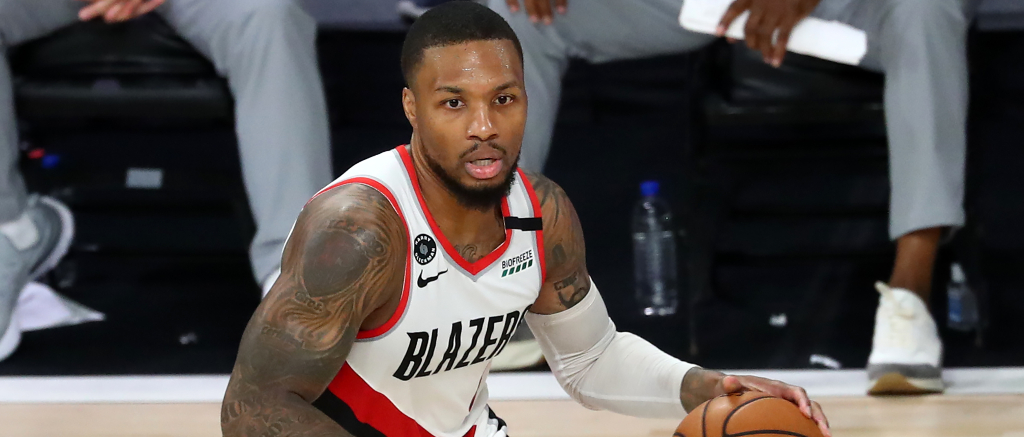
The Lakers-Blazers series has given us some incredible moments so far, but one of the best came midway through the fourth quarter of Game 1. Portland found itself down by three, and as he is wont to do, Damian Lillard came around a screen and calmly knocked down an impossibly deep triple to tie the game.
It was one of several 30-foot-plus bombs Lillard drained on the night, cementing himself as one of the league’s most unconscious long-range bombers. But arguably the best moment came in the aftermath, as Lillard was making his way back down the court on defense.
With the DJ playing Too Short’s “Blow the Whistle,” Dame couldn’t help himself and broke into a dance to celebrate the moment and acknowledge his Bay Area rap godfather.
Here it is: @Dame_Lillard nails a deep 3 then dances to Blow The Whistle…because The Bay. #NBAPlayoffs pic.twitter.com/mRC2Vui5GS
— Evan Doherty (@YSportsEvan) August 19, 2020
It was a moment you might have expected during a home game, under normal circumstances. Of course, there’s no such thing as normal in Orlando, and partly as a response to this, bubble DJs now say they will be more cognizant about not playing favorable tracks for players who are ostensibly on “road” games. Note that the Lakers held the No. 1 seed in the West and would’ve played their first two games at home at Staples Center.
Here’s more from Chris Haynes of Yahoo Sports:
The DJ contributes to the game-day experience by creating an atmosphere intended to hype up the “home” team.
Obviously, these DJs have to sometimes perform against the teams by which they’re employed. In a Trail Blazers “home” game, tracks by Dame D.O.L.L.A. are in heavy rotation.
DJ M.I.L. worked Tuesday’s Lakers-Blazers game and happened to have “Blow the Whistle” on his playlist. Moving forward, sources said, emphasis will be placed on going through playlists to make sure certain tracks aren’t iconic to the “visiting” team or to opposing star players who are supposed to be on the “road.”
The atmosphere inside the arena is already heavily manufactured, with fake crowd noises throughout the game and virtual fans appearing on large television screens in the background. So far, though, they’ve done an admirable job of creating the illusion of a regular basketball game, and if that illusion can be extended to the idea of road-versus-home games, then sure, why not?
